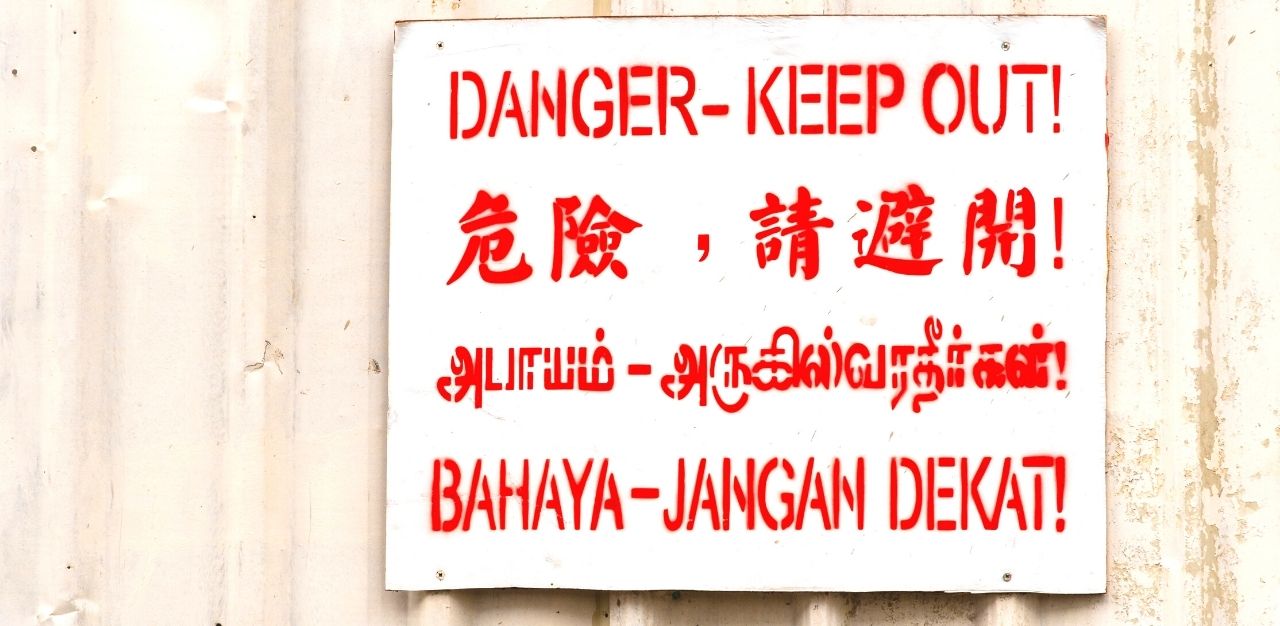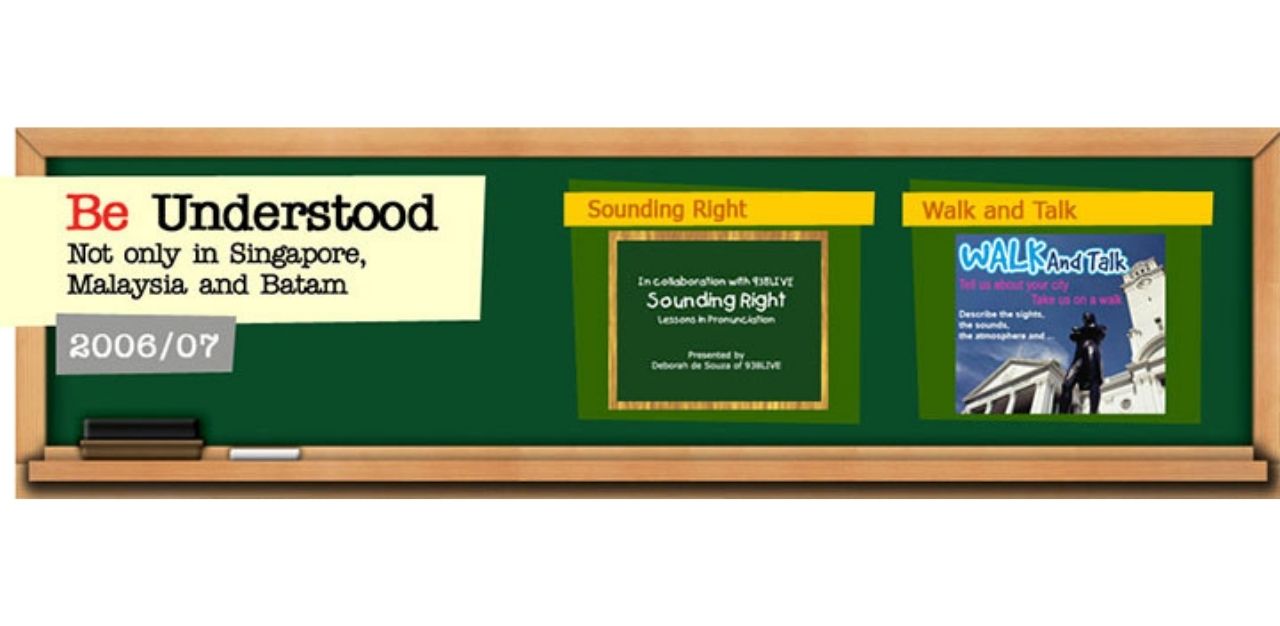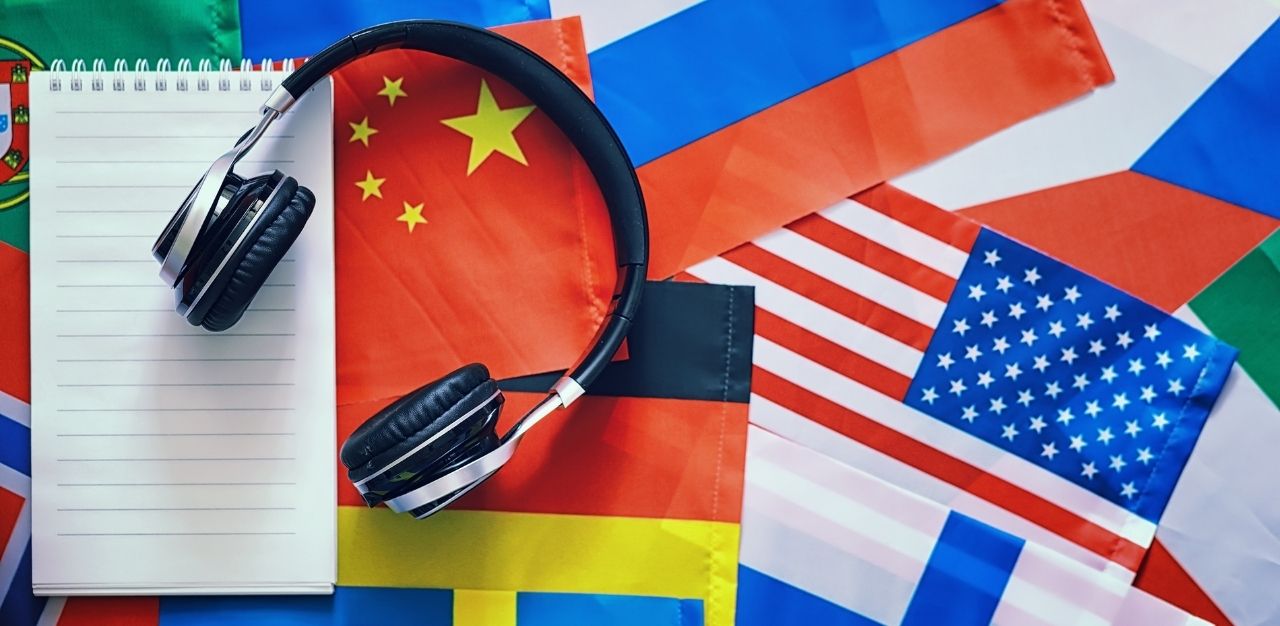That accents serve as an identity marker is not a foreign concept. Often enough, I find myself identifying fellow countryfolk while travelling, by the distinctive Singlish accent that we share as Singaporeans. And with it, comes a warm sense of camaraderie, home, and belonging. But while feelings of warmth may extend to some, certain accents may also bring with it other, sometimes less positive, sentiments.
It is a phenomenon linguists and sociologists have studied extensively through language attitude studies – how people are able to make judgements about others simply from the way they speak. For instance, studies can investigate differences in attitudes towards one’s native language compared to their second language; sentiments towards a majority language versus a minority language; or how individuals perceive one accent over another.
The latter, in particular, is interesting; for speaking the same language is not always enough to foster a sense of shared identity and understanding. Instead, how we speak it is just as crucial, and can have implications on the kind of treatment we receive, and the privileges awarded within the society.
A case study of Morocco

To better understand just how language can affect perception, I refer to the North African nation of Morocco, where a diverse language landscape thrives with two official languages (Arabic and Berber), alongside other languages like French, English and Spanish.
The above was explored by Associate Professor of Linguistics at Purdue University Northwest, Mohammed Errihani (2016) in his investigation of the different languages and language varieties in Morocco, and how they are perceived within the nation.
Errihani’s (2016) qualitative review suggests that beyond serving as an identity marker, language also indexes the social class of the speaker. And accents, in particular, are an indicator, as he argues that they represent a “cultural and symbolic capital that cannot be achieved through education, or access to economic resources; it is innate.”
He highlights that while Arabic speakers, in general, are viewed with greater regard in Morocco (as compared to other languages like Berber, which is mostly spoken by those in rural areas), the type of Arabic they are speaking also matters.
Specifically, the variety of Arabic spoken in the northeastern Moroccan city of Fez is seen to be the “most prestigious variety of Moroccan Arabic”. This is attributed to Fez being known as the heart of Morocco’s culture, education, and refinement that automatically indexes its people as having a superior social status, which extends to the Fassi (people from Fez) accent.
Consequently, speaking with a Fassi accent automatically grants speakers access to “economic and political advantages”, he writes. “In Morocco, as is the case in many multilingual settings, language is not just an instrument of communication; it is also a tool that guarantees power and social status,” Errihani continues. “Language discriminates and creates inequality. And like class, it is an experience that people define verbally and actively through everyday practices.”
And while Morocco is a country more than 10,000 kilometres away from Singapore with a differing linguistic landscape, parallels in how class and power distinctions are established based on varieties in a language still exist.
Accents and prestige in Singapore

Singapore, which prides itself on being multiracial, is a conglomerate of accents from all over the world. But are some seen as ‘better’ than others?
Anecdotal evidence from my own life experiences suggests so. Often enough, I have witnessed individuals dropping their Singaporean accent and adopting a more ‘Americanised’ one in formal settings, such as presentations and interviews, in an attempt to sound more refined. I, too, have been guilty of this. On my six-month exchange programme while in Canada, I made a distinct effort to shed my Singaporean accent. The same applied when I travelled to China and Taiwan, when I made feeble attempts at sounding more ‘native’ in Mandarin, despite my lack of fluency in the language.
There is a case to be made for easier intelligibility and understanding in a foreign environment, but I must admit that the conscious decision to sound less Singaporean arose in part because of feelings of shame associated with the Singaporean accent – that it was, in some ways, inferior and sounded less ‘proper’ in contrast to the accents of the countries I was in.

And this behaviour was something that I had adopted even as a child, when I was a mere nine-year-old on holiday in the United States with my parents. Ingrained by years of the Speak Good English movement the Government had publicised, and a healthy diet of Western television shows, I was led to the foregone conclusion that sounding Singaporean was less desirable than sounding American or British.
Later, while pursuing my degree in linguistics, I learned that this was an example of ‘prestige bias’ – when individuals had a preference for things that are perceived as better or superior. Within the field of sociolinguistics, prestige is applicable for languages or language varieties that are accorded a higher status by society, like the Fassi accent in Morocco. In my case, I was engaging in a behaviour known as borrowed prestige, where I (attempted to) speak in the prestige variety of a language.
Research on prestige and language varieties in Singapore is sparse but results from a couple of studies support bias towards prestige variants of English and Mandarin.
In Singapore, the main varieties of English being spoken are Singapore Colloquial English (SCE, commonly referred to as Singlish) and Singapore Standard English (SSE, the prescribed language of education, media, business, and administration).
In their research, Francis Cavallaro and Ng Bee Chin (2009) found that in a matched guise study, where Singaporeans were asked to rate audio recordings of the two varieties against a range of semantic scales, SSE speech was rated higher across traits that indicated ‘status’: hardworking, ambitious, intelligent, and confident. Likewise, through a similar methodology, Rachel Chong and Tan Ying Ying’s (2013) study on attitudes toward Mandarin accents in Singapore uncovered results congruent with my own experiences; Singaporean Chinese youths rate Beijing and Taiwanese accents of Mandarin more favourably than the local accent.
But, as far as whether some accents are deemed superior to others, the reverse can also be true. And with this bias comes the possibility of discrimination against those who speak in a non-prestige variant of a language or accent.
Accents and discrimination
Discrimination based on accents have been observed in countries around the world.
A paper published by the Social Mobility and Child Poverty Commission and Social Mobility Commission in the United Kingdom (UK) underscores how accents continue to be a factor of consideration in the hiring process. Across the pond, a Singaporean living in America, Kelly Ng, shares her experience, and that of fellow minorities, in the United States on discrimination they have faced because of their accents.
Within our borders, Instagram activist page @wakeupsingapore posted an anecdotal account from tuition agency Learner Net, revealing discrimination faced by tutors, because of their accents. The message detailed incidents of tutors belonging to minority races getting rejected by tuition agencies and centres, or even fired by parents, over their accents.
Meanwhile, a thesis written by Linguistics & Multilingual Studies undergraduate, Jaslyne Loh (2020), found that heterosexual women display a preference towards the Singaporean Chinese accent, as opposed to the Singaporean Malay and Indian accents. Here, the Singapore Chinese accent is thus seen as the prestige variety, with the potential for its speaker to receive better treatment and privileges, as opposed to speakers with accents of minority races.
While there does not appear to be any data on discrimination arising due to accents in Singapore today, the above examples are an indication that Singapore is not an exception to the norm.
That biases and discrimination can arise from accents is easy to overlook. Often, visual differences are the most apparent, and also the most spoken about, even in the ongoing conversations of race relations and xenophobia.
But to check our biases, it is important to recognise where they stem from, acknowledge that they exist, and challenge them when the situation arises. It is only then that we can begin to bridge our differences, and enact real progress towards racial harmony and being an inclusive society.
Join the conversations on TheHomeGround Asia’s Facebook and Instagram, and get the latest updates via Telegram.




























